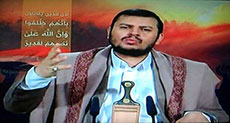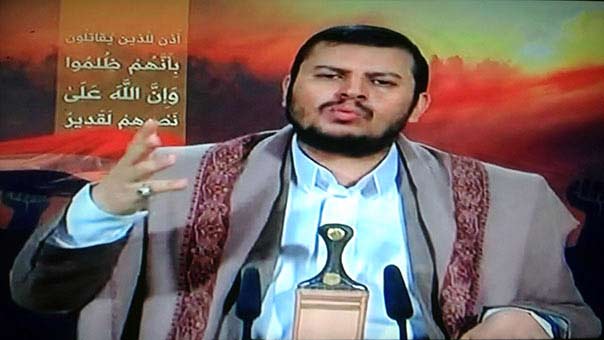This is Why Saudi Arabia must Worry

Wafic Kansoh
In May 2013, Tom Fletcher, the British ambassador in Beirut, saw that the situation in the region indicated that the agreement of "Sykes - Picot was not eternal" and that a "new Sykes-Picot" was looming in the horizon. Two years after the events in Syria, and two years before the aggression on Yemen, the aging empire's ambassador, whose country had always toyed with countries' borders and peoples' determinations, observed that the "Arab spring" was but the beginning of a new geopolitical map of the region.

Sources say that it is now clear that the Americans are attempting to build a new system over the relics of Sykes-Picot, in which all regional parties are fiercely attempting to reserve their place. Tel Aviv is a shoe-in because of its strategic alliance with Washington. Tehran has secured itself a sure place because of the role it might play along with its allies from the hills of Asia Minor to the coasts of the Mediterranean. This explains Israel's attitude with regards to the nuclear deal, which has exposed the pettiness of its strategic role to the international system if compared to the significance of Iran and its role. So where would they stand if Iran's role and significance were joined with Turkey's leadership of the Sunni world?
Only Saudi Arabia, in the ongoing transformation, seems like a gambler, lost after losing all of his money. In Syria, everyone has gotten over overthrowing the government. American Secretary of State John Kerry's talk of being prepared to negotiate with President Bashar al-Assad to end the crisis was no slip of the tongue. Assad is no longer a president who "has lost his legitimacy and must go", as American officials kept saying these past few years. In Syria as well, Iran's role was affirmed, as was that of its ally Hizbullah. No one remembers when the last Western statement in criticism of its role in the country was. In Iraq, the significant role of Iran and its allies was also affirmed. Qasem Sulaymani did not wander in Nouri al-Maliki's Iraq as he did in Haydar al-Abbadi's. In Lebanon, the American order is clear: it is forbidden to use terrorists within Lebanon, destabilizing it and allowing them to reach the shores of the Mediterranean.
Fighting them is a must. In other words: Washington and its opponents are in agreement that Lebanon is to be kept safe of the region's problems. Finally, the Kingdom's "backyard". Saudis watched with disbelief as Yemen escaped their grasp. Even when they called upon the Islamic world to take part in the "Storm of Resolve", they ended up alone in battle, a lose-lose situation, in which there is no possibility of winning: Any political agreement will no doubt include an affirmation of Iran's partnership and its role in Yemen. Dwelling further into this war will have catastrophic repercussions inside Saudi Arabia: The terrorists of "al-Qaeda" in Hadramout, losing to Ansarullah, and ISIS in al-Anbar, losing to the popular army, will have nowhere to go but Saudi Arabia. A niche that is the source of terrorist thought. Then, people would venture to say that Salman bin Abdul Aziz could wind up "King of Najd"!
Of course, it's too soon to say that Saudi Arabia's role in Washington's favor is over. But one can soundly see the signs of the beginning of American abandonment. Once the agreement with Iran, which struck Saudi Arabia like lightning, is placed into perspective, one understands that American vice president John Biden's accusing Saudi Arabia of supporting terrorism and funding Takfiri groups such as "al-Qaeda" and ISIS was not a slip of the tongue. Nor was it so when President Barack Obama recently pointed out that the gravest danger threatening Gulf countries was the anger within them. Nor would the Iraqi Prime Minister dare to question the Saudi aggression, and announce his agreeing with the American administration that the attack on Yemen made "no sense", from within the White House, were it not for an American green light.
These are all indicators that the West now looks, with seriousness and worry, to the Arabia Peninsula's transformation into the world's biggest breeding ground for terrorism: Here, we have biggest ideological source for terrorism; Here, we have the largest exporter of terrorists; Here, we have the largest funder of terrorism. Billions of dollars have been and are being spent on Wahhabi "Madrassahs", from which the terrorists of "Taliban", "al-Qaeda" and ISIS have graduated. The West is now prioritizing the drying out of this phenomenon's ideological and monetary sources. Americans will not forget than 15 of the 19 terrorists in the September 11th attacks were Saudi. Again, it is far too early to say that the Saudis' American mission is over. But it is useful to point out that the Americans are the ones in control, and that is why Saudi Arabia must worry...a lot.
Source: al-Akhbar, Translated by website team
Comments
person Zaheer Abbas
excellent
i allways wonder when mi teacher started telling that saudi days r nearing since the begining of arab spring in his political discourses but i cudnot place the jigzaw puzzle pieces together of the al saud collapse he also says it is eminent but it is too early they will use al saud the ways american has used bin laden even his death wat of billions in terms of occupation and aggression eg c the drones. b4 destroying they will use al saud dynasty up to the maximum extent



